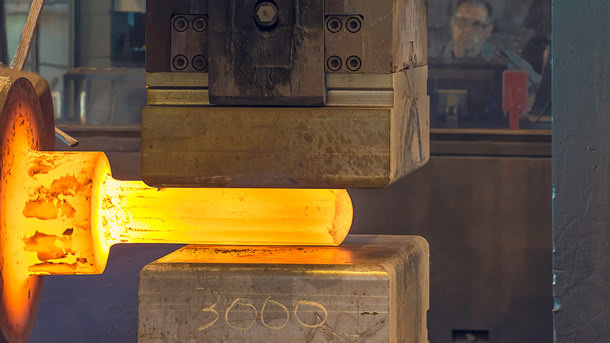FORGING: THE OPEN DIE FORGING PROCESS

Open die forging involves the shaping of heated metal parts between a top die attached to a ram and a bottom die attached to a hammer, anvil or bolster. Metal parts are worked at their appropriate temperatures, ranging from 500°F to 2400°F, and gradually shaped into the desired configuration through the skillful hammering or pressing of the workpiece.
While impression or closed die forging confines the metal in dies, open die forging is distinguished by the fact that the metal is never completely confined or restrained in the dies. Most open die forgings are produced on flat dies. However, round swaging dies, V-dies, mandrels, pins and loose tools are also used depending on the desired part configuration and its size.
Although the open die forging process is often associated with larger, simpler-shaped parts such as bars, blanks, rings, hollows or spindles, in fact it can be considered the ultimate option in "custom-designed" metal components. High-strength, long-life parts optimized in terms of both mechanical properties and structural integrity are today produced in sizes that range from a few pounds to hundreds of tons in weight. In addition, advanced forge shops now offer shapes that were never before thought capable of being produced by the open die forging process.
- Pre:Machining process 2015/12/10
- Next:Forging process 2015/7/31

